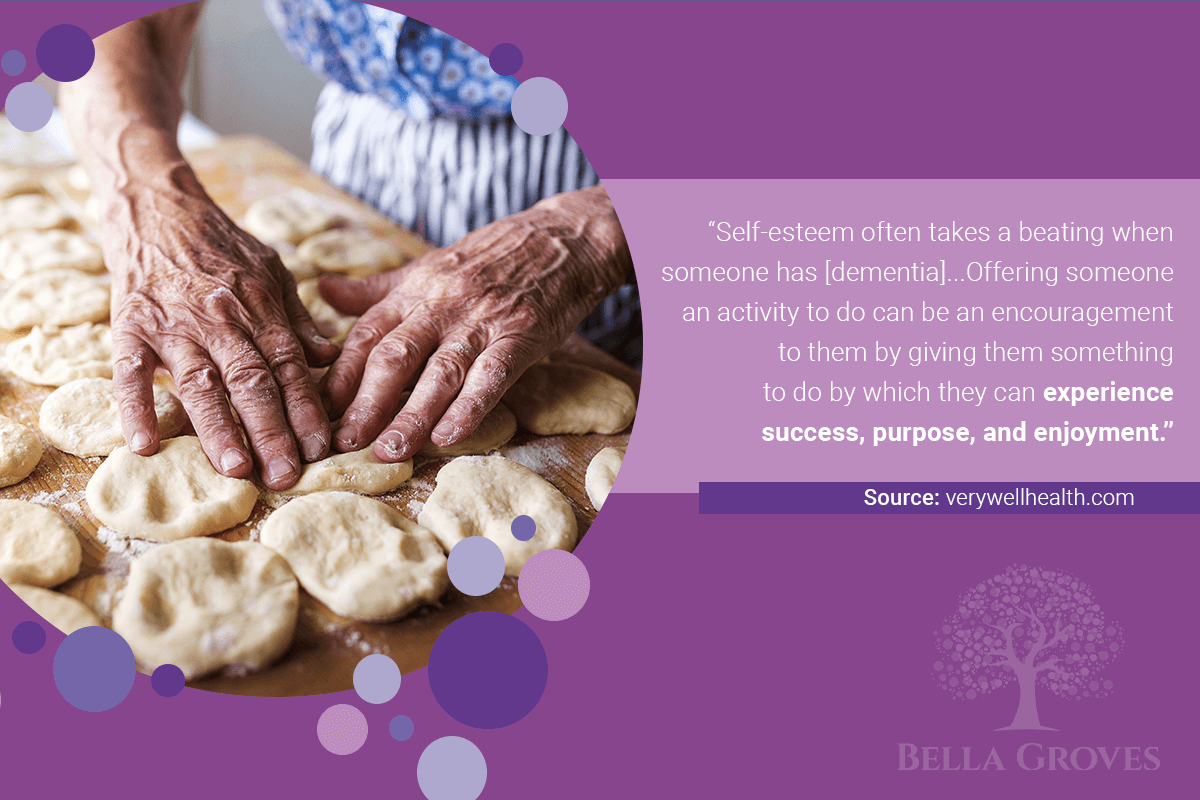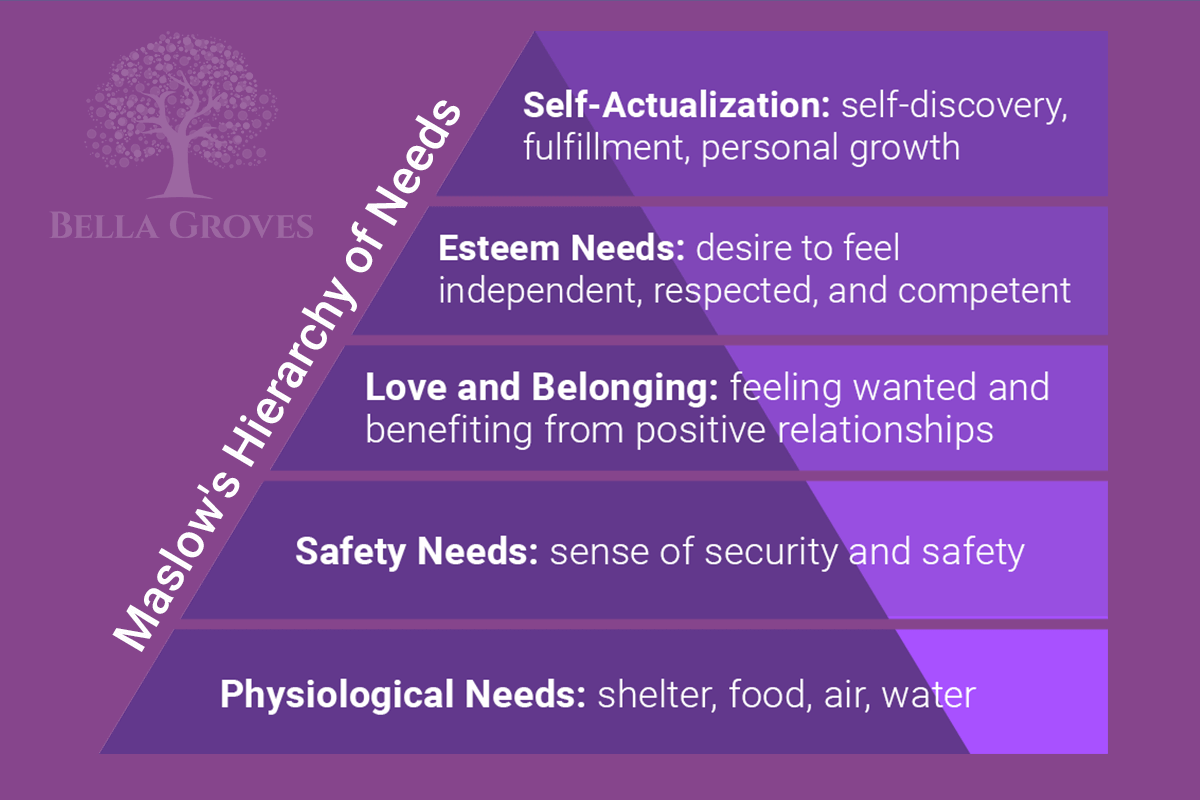
Creating Meaningful Activities for a Person Living with Dementia
When caring for someone living with dementia, a common question is how to offer them engagement that is appropriate and meaningful. People living with dementia are not children, and they should not be treated as such. They are parents, spouses, siblings, and friends who have lived full lives, and they need opportunities that allow them to continue living with purpose and vitality.
Our mission at Bella Groves is to help individuals impacted by dementia experience Unconditional Joy, which starts with their day-to-day lives. Designing meaningful activities for a person living with dementia does not require a wealth of knowledge, but it does begin by reframing perspectives. However, for many people, planning activities start with a focus on dementia itself – on the limitations it presents and the safety-related issues that arise, causing them to revert to activities that keep a person living with dementia “busy” but not engaged.
Changes to a person’s cognitive function don’t diminish their desire for connection. Instead of focusing on dementia, focus on the person. By doing so, you will put yourself in a better position to create meaningful activity ideas that add value to the life of a person living with dementia.
Focus on Activities with Purpose
When considering meaningful activity ideas, the goal of the task should be more than just to give them “something to do.” These activities can take many forms, but you start with activities your family member has always loved. For example, if they enjoy baking, safely involve them in the baking process. Preparing food can help a person living with dementia practice hand-eye coordination, and the end result can create a sense of accomplishment.
Another way to make activities meaningful is to allow them as much independence and autonomy as safely possible. If you continually step in to help them with activities, you may inadvertently rob them of that feeling of independence. As the Alzheimer’s Association shares:
If your [family member] enjoys taking beautiful photographs of the birds that come to his backyard feeders, there is no need to let the [dementia] diagnosis take that away too. You may need to help him develop film, you may not. You may need to remind him where the camera is stored when not in use, you may not. Don’t change a thing unless you have to.
Every Person is Unique
The brain is a complex and fascinating organ, and dementia affects every brain differently. As a result, you may find that your family member’s interests and preferences begin to change. The meaningful activity ideas you create might be interesting and engaging to your family member but hold little interest to the people around them, including you.
Here is an example:
There was a woman living with dementia that included profound memory loss. It had reached the point that she often mistook people for members of her family while forgetting her own family members. Her care partner had several photo albums which contained pictures of various family members – none of whom were related to the woman.
Yet, for a portion of each day, the woman would open the photo album, look through the pictures, and tell her care partner stories about “her family,” going into detail about family members while her care partner asked questions and continued the conversation.
Was this activity meaningful to the woman living with dementia? Yes. For a portion of each day, she experienced the warmth and joy of connection, and she shared that joy with her care partner.
Dementia requires that we reframe our conceptions of what is meaningful and important. The most valuable part of that example is that the care partner was able to help a person living with dementia experience joy and happiness. And at Bella Groves, that is what we are called to do.
To learn more about Bella Groves and our unique approach to dementia care, please visit our website today.


